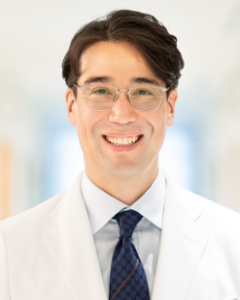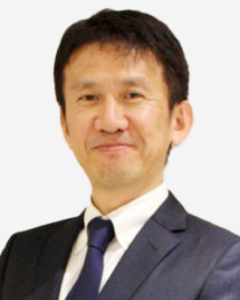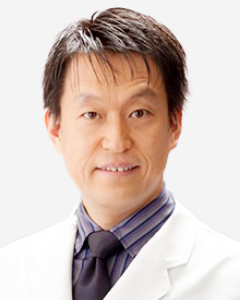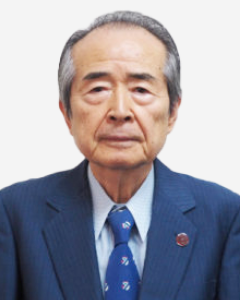representative of a board of directors
Yoshimu Tanaka
- Born in Osaka, 1952
- 1980 Graduated from Tottori University Faculty of Medicine
- Current position: President, Tanaka Clinic, Jinzenkai Medical Corporation
- Doctor of Medicine
Fecal microflora transplantation" is a promising option to expand the treatment possibilities for cancer and other lifestyle-related diseases and intractable diseases, which continue to increase.
Based on our past achievements, we would like to accumulate more clinical cases to be able to provide an effective solution.
The potential of this treatment method is expanding greatly. We will continue our research to meet your expectations, and we look forward to your support.
Click here to visit the Tanaka Clinic website.
managing director
Masahiko Shirotani
- 1970 Born in Hyogo Prefecture
- 1995 Graduated from Tokyo Medical and Dental University, School of Medicine
- Current position: Director, Luke's Ashiya Clinic
As a gastroenterologist, I have been involved in "fecal microbiota transplantation" since the establishment of the study group, and every time I perform transplantation therapy, I am amazed at the power of intestinal bacteria, and at the same time I realize that fecal microbiota transplantation is a treatment method with potential to evolve in the future.
We have ensured a high level of safety in transplantation by using strict criteria in screening of donors, and we will continue our research to achieve more effective fecal microbiota transplantation while further improving safety.
We hope that we can be of some help to you through this study group.
Click here to visit the Luke's Ashiya Clinic website.
director
Kensho Yorozu
- Born in Tottori, 1975
- 2003 Graduated from the School of Medicine, College of Occupational and Environmental Medicine, University of Occupational and Environmental Health, Japan
- Current position: President, Iryushinkai Yorozu Clinic
In recent years, the relationship between intestinal bacteria and various diseases has been elucidated, and fecal transplants have been attracting attention.
However, in Japan, it is currently only used in clinical trials at a few university hospitals, and the number of diseases for which it is used is currently limited.
Our NanoGAS®-FMT, which uses our nanobubble technology, allows us to perform fecal microbiota transplantation in a very efficient manner. We would like to further utilize this revolutionary method in clinical practice and contribute to the accumulation of evidence.
Click here to visit the Yorozu Clinic website.
director
Masayuki Oe Holm
- Born in 1977 in Sweden and grew up in Osaka
- 2002 Graduated from the School of Medicine, College of Occupational and Environmental Medicine, University of Occupational and Environmental Health, Japan
- CURRENT POSITION: PRESIDENT, LIFE CLINIC TATESHINA, LAGOM MEDICAL CORPORATION
With the theme of "making people and communities happy through medical care," I am opening a clinic to pursue preventive medicine for cancer and dementia and to support health promotion.
The word "intestines" tends to be thought of only as digestion, absorption, and excretion, but they also play a wide range of other roles, such as metabolism, synthesis, and immunity, to the extent that they are called the "second brain. Gut management is very important when taking a preventive medicine approach to treatment, but it is a difficult task.
There are many management methods such as elimination diets and probiotics, but I believe that FMT (fecal transplantation) is a revolutionary treatment method that approaches the root of the intestinal flora. With the help of many doctors, we will make every effort to educate and treat patients suffering from intractable diseases so that the Intestinal Flora Transplant Clinical Study Group can be a beacon of light for them.
Click here to visit the Life Clinic Tateshina website.
director
Kunihiro Kitamura
- 1963 Born in Fukuoka, Japan
- 1991 Graduated from Kawasaki Medical University
- Current position: Director, Kitamura Clinic, Kiwakai Medical Corporation
- Doctor of Medicine
It has become clear that disorders of the intestinal flora are deeply involved in various diseases, and fecal microbiota transplantation is being used around the world as a new treatment for inflammatory bowel disease, cancer, intractable diseases, and lifestyle-related diseases.
Fecal microbiota transplantation is now one of the promising therapies that should be actively pursued.
Let us deepen our learning together through this workshop and clarify the possibility of fecal microbiota transplantation for the benefit of those who are suffering from diseases.
Click here to visit the Kitamura Clinic website.
director
Yuichi Kawai
- Born in Osaka, 1966
- 1992 Graduated from Shiga University of Medical Science, Faculty of Medicine
- Current position: President and Director, Cute Internal Medicine Clinic, Yuhakai Medical Corporation
- Doctor of Medicine
Today, the black box of intestinal flora has been opened and its research is advancing worldwide. As a result, the conventional concept of medicine is changing drastically.
And the "fecal microflora transplantation therapy," in which fecal matter from healthy people is transplanted to treat various diseases, which appeared as a change in the concept of treatment, has now been proven to be effective, and the view that "the human intestinal microflora is an organ" is now becoming a reality.
I am truly fortunate to have been one of the doctors in this era of tremendous changes in medicine.
And as a member of this research group, I would like to express my gratitude to the research group and everyone involved for the opportunity to open up the black box of intestinal flora even wider.
Click here to visit the website of the Kawauchi Internal Medicine Clinic
supervisor
Goro Tsukamoto
- Born in Aichi, 1938
- Graduated from Gifu Pharmaceutical University in 1962
- Former Director and General Manager of Drug Discovery Research Laboratories, Bell Boss Co.
- Former Visiting Professor, University of Pittsburgh, USA
- Doctor of Engineering
Fecal microbiota transplantation," which has been rapidly studied in recent years and is expected to treat intractable diseases and prevent lifestyle-related diseases, is a method of directly injecting intestinal microbiota obtained from the feces of healthy people into the intestines of patients in order to restore the balance of the intestinal microbiota, which has collapsed.
However, it is not easy to effectively establish the intestinal bacteria of others. NanoGAS® water, which contains invisible microscopic bubbles, was developed to effectively settle other people's intestinal bacteria, which were originally considered to be blocked by autoimmune functions such as IgA (immunoglobulin A) and could not live in the intestines.
This has solved a difficult problem, and remarkable clinical results are being announced. As I have made the research and development of new drugs my life's work, I believe that this will be a wonderful therapy that is in accordance with the natural order of things, and I have great expectations for its future progress.
All of our board members work as "pro bono" members without compensation.
The term "pro bono" refers to social contribution activities in which experts in various fields offer their knowledge and skills free of charge (or the individuals doing the activities).
By combining their specialized knowledge and experience, they work as a non-profit organization to establish a new type of medical care.











